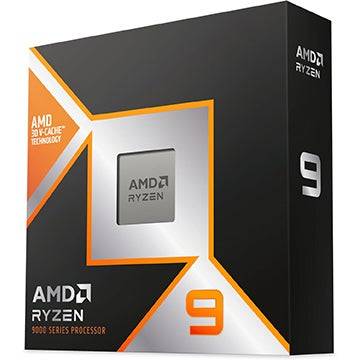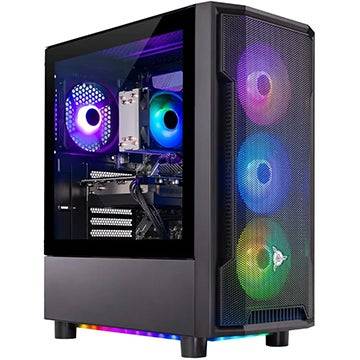Just a few months after the AMD Ryzen 7 9800X3D graced us with its presence, the Ryzen 9 9950X3D brings its 3D V-Cache technology to a 16-core, 32-thread gaming processor that's absolutely overkill for most people, but will have no problem keeping up with powerful graphics cards like the Nvidia RTX 5090 or whatever comes next. However, all of those cores come with a high $699 asking price and a 170W power budget, making this processor hard to recommend to anyone who isn't already building an incredibly powerful (and expensive) gaming PC. For anyone else, the Ryzen 7 9800X3D just makes more sense.
Purchasing Guide
The AMD Ryzen 9 9950X3D is available starting March 12, with a suggested retail price of $699. Keep in mind that AMD's processor prices can fluctuate based on market demand, so it's worth checking for deals.
AMD Ryzen 9 9950X3D – Photos
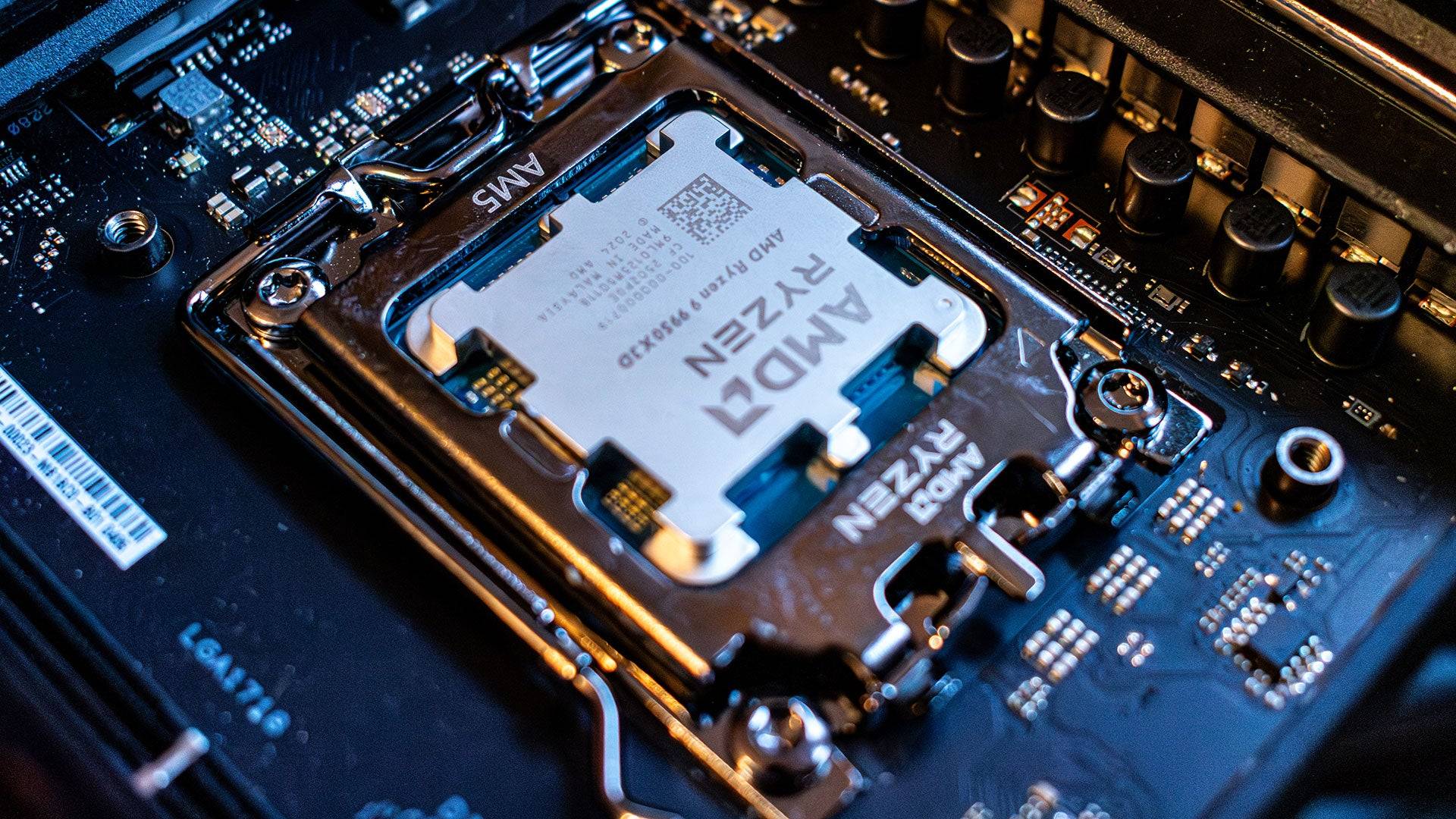
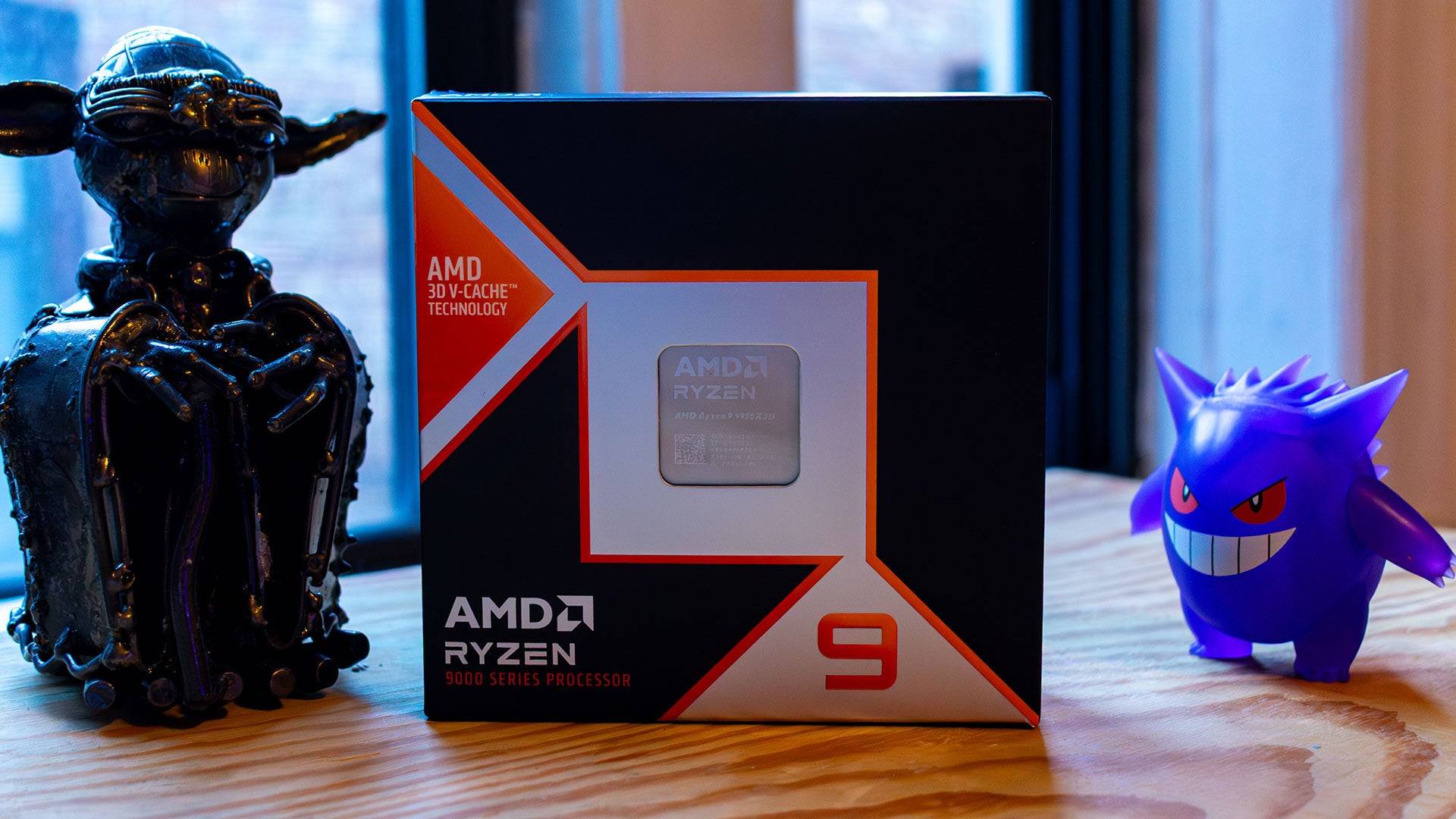 3 Images
3 Images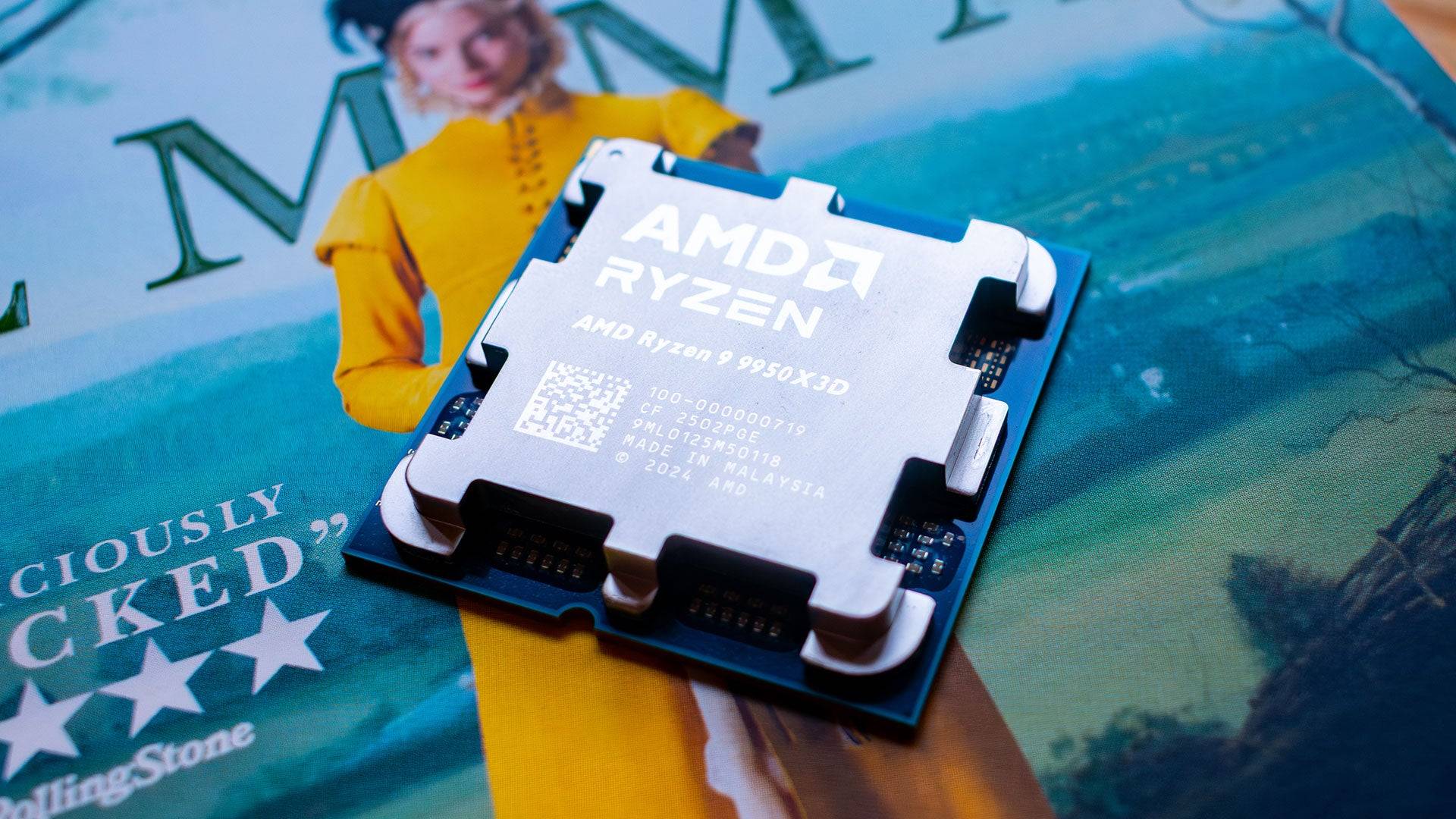
Specs and Features
The AMD Ryzen 9 9950X3D leverages the same Zen 5 cores as the regular 9950X but enhances gaming performance with the new 2nd-generation 3D V-Cache, also found in the Ryzen 7 9800X3D. This combination ensures excellent multi-core performance alongside improved gaming capabilities due to the increased cache size.
A notable change from the Ryzen 9 7950X3D is the positioning of the 3D V-Cache, now located below the CPU cores rather than above them. This seemingly minor adjustment significantly improves thermal performance. By placing the Core Complex Die (CCD) closer to the Integrated Heat Spreader (IHS), heat dissipation is more efficient. With AMD's performance algorithm considering thermal headroom, the Ryzen 9 9950X3D can sustain higher speeds for longer periods.
The strategic placement of the cache also reduces data travel distance, thereby lowering latency. Additionally, the increased cache space allows for a hefty 144MB of combined L2 and L3 cache, matching the previous generation's Ryzen 9 7950X3D and surpassing non-X3D processors.
Both the AMD Ryzen 9 9950X and 9950X3D share a 170W TDP, though the original 9950X has a higher potential PPT. In testing, both reached a peak power draw of 200W. However, the 9950X3D maintained a lower peak temperature of 79°C, thanks to being tested on a different cooler.
The 9950X3D's compatibility with AM5 AMD motherboards is a significant advantage, as AMD has committed to supporting this socket until at least 2027, ensuring long-term platform stability.
AMD Ryzen 9 9950X3D – Benchmarks
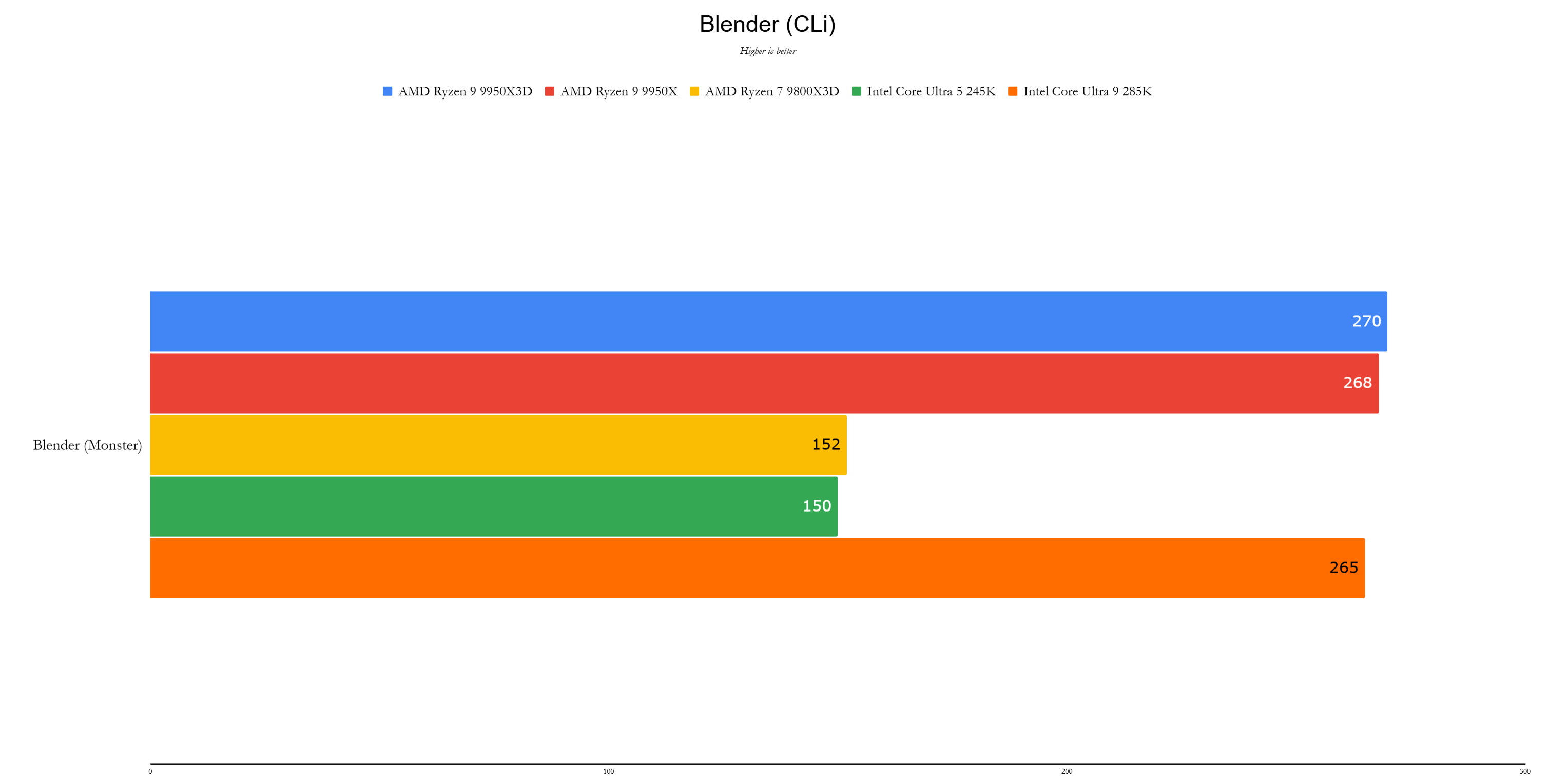
 11 Images
11 Images


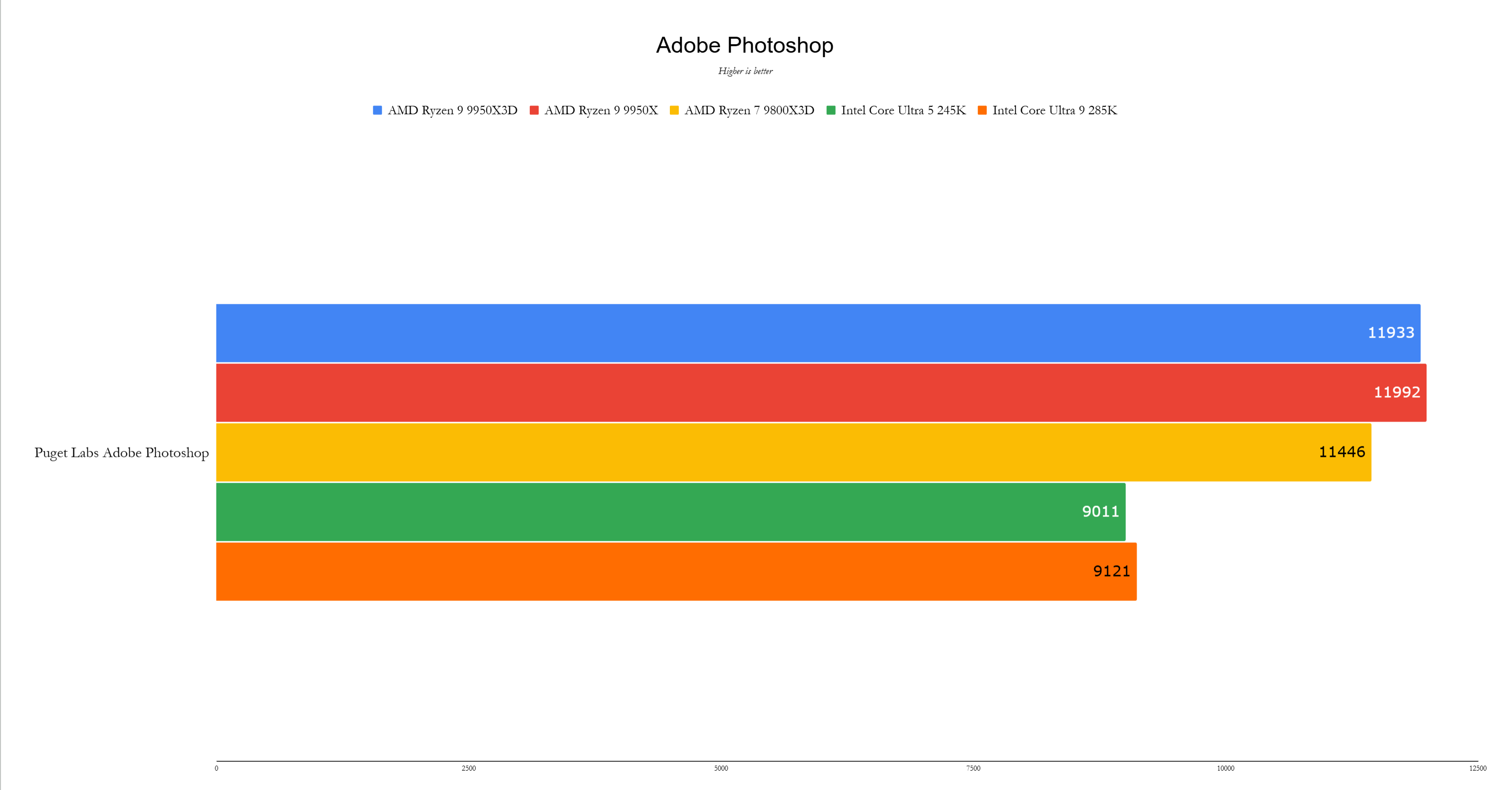
Performance
Before delving into performance results, it's important to note that all CPUs were tested on the same hardware, with the exception of the Ryzen 9 9950X, which was tested on an Asus ROG Crosshair X670E Hero motherboard with a Corsair H170i 360mm AIO cooler. While this hardware difference may influence performance, the impact is expected to be minimal, especially since all tests were conducted at stock settings.
AMD Test bench:
- GPU: Nvidia GeForce RTX 4090
- Motherboard: Asus ROG Crosshair X670E Hero; Asus ROG Crosshair X870E Hero (9800X3D)
- RAM: 32GB G.Skill Trident Z5 Neo @ 6,000MHz
- SSD: 1TB PNY CS3140 Gen4x4 NVMe SSD
- CPU Cooler: Asus ROG Ryujin III 360 ARGB Extreme
A hardware issue arose when a mounting screw for the Asus ROG Ryujin III 360mm cooler snapped during the switch to the 9950X. I will retest the processors in the coming weeks, and if any significant differences arise, I'll update this section.
The AMD Ryzen 9 9950X3D, with its 16 cores, 32 threads, and an impressive 144MB of cache, delivers exceptional performance. Even in creative benchmarks where the 9800X3D lagged, the 9950X3D competes with the top chips available.
Intel Test Bench:
- GPU: Nvidia GeForce RTX 4090
- Motherboard: Asus ROG Maximus Z890 Hero (200S); Asus Prime Z790-A (14th-Gen)
- RAM: 32GB Corsair Vengeance DDR5 @ 6,000MHz
- SSD: PNY CS3140 1TB Gen 4 x 4 NVMe SSD
- CPU Cooler: Asus ROG Ryujin III 360 ARGB Extreme
The 9950X3D's performance in single-core workloads is particularly impressive. In Cinebench 1T, it scored 2,254 points, a 10% improvement over the 9800X3D's 2,033 points. In the 3DMark CPU Profile test, the 9950X3D achieved 1,280 points, nearly matching the Intel Core Ultra 9 285K's 1,351 points.
In multi-threaded workloads, the Ryzen 9 9950X3D shines, scoring 40,747 points in Cinebench's multi-core test. While it falls slightly short of the 9950X's 41,123 points and the Intel Core Ultra 9 285K's 42,245 points, the trade-off is worth it for the enhanced gaming performance.
In gaming, the 9950X3D excels. In Total War: Warhammer 3 at 1080p with Ultra settings, it achieved 274 fps when paired with the RTX 4090, surpassing the 9800X3D's 254 fps and the Core Ultra 9 285K's 255 fps. However, in Cyberpunk 2077 at 1080p with the Ultra preset and ray tracing disabled, it delivered 229 fps, slightly down from the 9800X3D's 240 fps but still significantly outperforming the Intel processor's 165 fps.
Overkill?
While the AMD Ryzen 9 9950X3D is undoubtedly the most powerful gaming processor currently available, it's not necessarily the best choice for everyone. Most users will find the Ryzen 7 9800X3D, priced at a more affordable $479, perfectly adequate.
The 9950X3D is ideal for gamers who also engage in creative tasks like using Photoshop and Premiere, where it offers a 15% performance boost over the 9800X3D. For those focused solely on gaming, however, the extra $220 might be better spent on upgrading to a superior graphics card.



